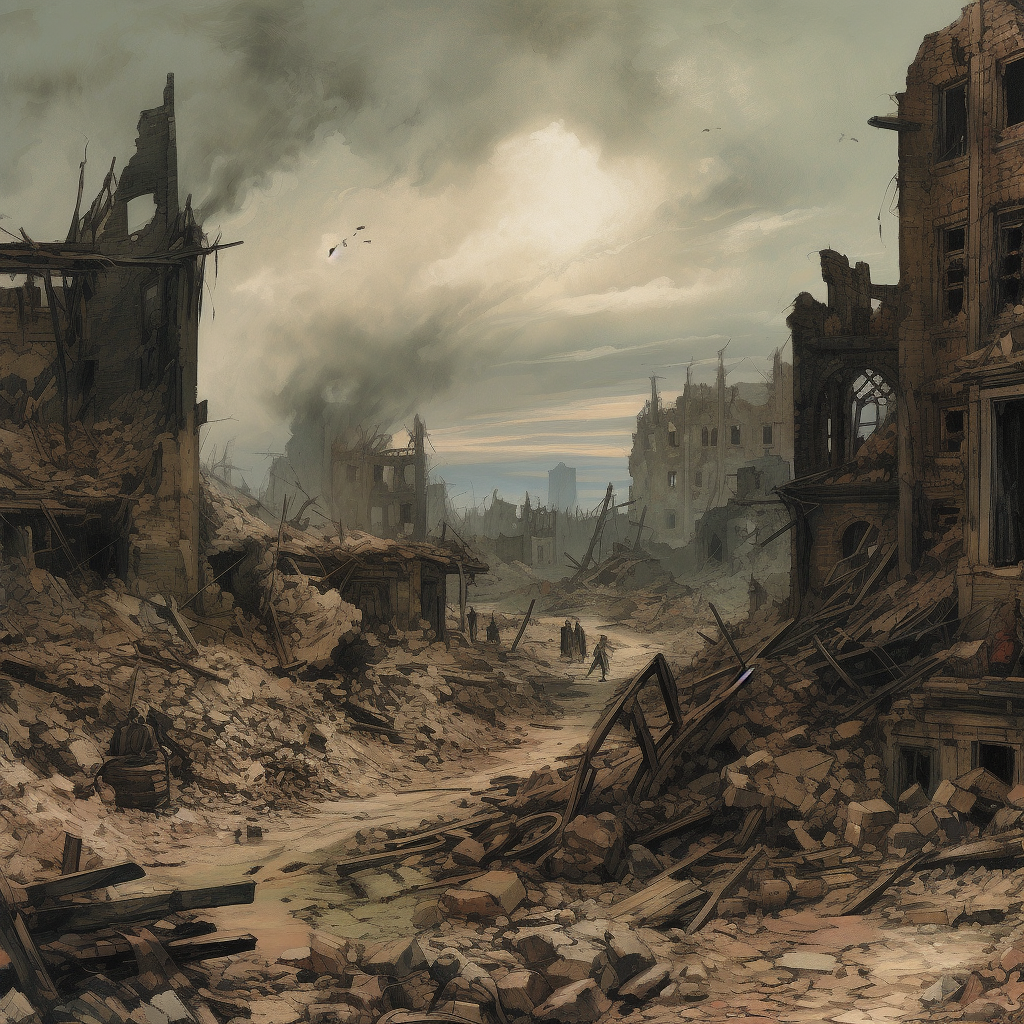Atrocity
Definition
Atrocity refers to an extremely wicked, cruel, or brutal act, often involving violence and significant harm. The term is commonly associated with severe human rights violations, wartime crimes, and acts that cause suffering or devastation.
Parts of Speech
- Noun
Pronunciation
American and British English
- IPA Pronunciation: /əˈtrɒsɪti/
- Respelling: uh-TROS-i-tee
Etymology
The word "atrocity" originates from the Latin "atrocitas," meaning "fierceness" or "cruelty," derived from "atrox," meaning "fierce" or "cruel." This term evolved into Middle French as "atrocité" before entering the English language in the late 16th century, where it has retained its association with extreme cruelty and brutality.
Derivatives
- Atrocious (adjective)
- Atrociously (adverb)
- Atrociousness (noun)
- Atrocity-laden (adjective)
- Atrocity-ridden (adjective)
Synonyms
- Horror
- Barbarity
- Abomination
Antonyms
- Kindness
- Compassion
- Mercy
Usage
The noun "atrocity" is used to describe actions that are shockingly cruel or inhumane, especially in contexts of war, genocide, or gross human rights abuses. For instance, "The atrocities committed during the conflict shocked the international community." It may also be used in less formal contexts to describe actions considered shockingly bad or offensive, though this usage is less common.
Related Terms
- Genocide: The deliberate killing of a large group of people, especially of a particular ethnic group or nation.
- War crime: Violations of the laws or customs of war, often involving cruelty to non-combatants.
- Human rights: Fundamental rights and freedoms that every person is entitled to.
Detailed Definitions
Noun
- An act of extreme cruelty or violence: Refers to a shockingly brutal action often causing severe harm, suffering, or devastation.
- Example: "The massacre was considered an atrocity by international observers."
- A shockingly bad or offensive act: In a less common sense, it may refer to any action deemed morally reprehensible or offensive.
- Example: "The destruction of historical monuments was seen as a cultural atrocity."
atrocity



🇨🇳 Mandarin
- 暴行 (bàoxíng)
- IPA Pronunciation: /paʊ˨˩˦.ɕiŋ˧˥/
- Respelling: bao-xing
- 惨无人道的行为 (cǎnwúréndào de xíngwéi)
- IPA Pronunciation: /ʈʂʰa˨˩n.ɻu˨˩˦ ʐən˨˩˦.taw˨˩˦ tə ɕiŋ˧˥.weɪ̯/
- Respelling: tsan-wu-ren-dao de xing-wei
🇮🇳 Hindi
- अत्याचार (atyācār)
- IPA Pronunciation: /ət̪jɑːʧɑːr/
- Respelling: atyaachar
- क्रूरता (krūratā)
- IPA Pronunciation: /kruːrətaː/
- Respelling: kroorataa
🇪🇸 Spanish
- atrocidad
- IPA Pronunciation: /atɾoθiˈðað/
- Respelling: a-tro-thee-DAD
- barbarie
- IPA Pronunciation: /baɾbaˈɾi.e/
- Respelling: bar-ba-RI-e
🇫🇷 French
- atrocité
- IPA Pronunciation: /atʁɔsite/
- Respelling: a-tro-see-tay
- barbarie
- IPA Pronunciation: /baʁbaʁi/
- Respelling: bar-ba-ree
🇦🇪 Modern Standard Arabic
- مأساة (ma'sa)
- IPA Pronunciation: /maʔ.sa/
- Respelling: ma'sa
- جريمة بشعة (jareemah bisha'ah)
- IPA Pronunciation: /ʒa.riː.mah bi.ʃaʕ.ah/
- Respelling: ja-ree-mah bi-sha-'ah
🇧🇩 Bengali
- নৃশংসতা (nriśaṃsatā)
- IPA Pronunciation: /nriʃ.ɔŋ.sa.ta/
- Respelling: nri-shong-sa-ta
- অত্যাচার (atyācāra)
- IPA Pronunciation: /ɔtjaʧaɹ/
- Respelling: atyachar
🇷🇺 Russian
- зверство (zverstvo)
- IPA Pronunciation: /zvʲerstvə/
- Respelling: zvyer-stvo
- злодеяние (zlodeyanie)
- IPA Pronunciation: /zlədʲeˈjanʲɪje/
- Respelling: zlo-dye-YA-nye
🇵🇹 Portuguese
- atrocidade
- IPA Pronunciation: /ɐ.tɾo.siˈða.dɨ/
- Respelling: a-tro-see-DAH-dee
- barbárie
- IPA Pronunciation: /bɐʁˈba.ɾi.ɨ/
- Respelling: bar-BAH-ree-eh
🇮🇩 Indonesian
- kekejaman
- IPA Pronunciation: /kə.kə.dʒa.mən/
- Respelling: ke-ke-ja-man
- kebiadaban
- IPA Pronunciation: /kə.bia.da.ban/
- Respelling: ke-bi-a-da-ban
🇩🇪 German
- Gräueltat
- IPA Pronunciation: /ˈɡʁɔʏ̯.əlˌtat/
- Respelling: GRAU-uhl-tat
- Schandtat
- IPA Pronunciation: /ʃandˌtat/
- Respelling: shand-tat
🇯🇵 Japanese
- 惨行 (zankō)
- IPA Pronunciation: /zan.koː/
- Respelling: zan-ko
- 残虐行為 (zangyaku kōi)
- IPA Pronunciation: /zan.ɡja.kɯ̟ᵝ koː.i/
- Respelling: zan-gya-ku ko-i
🇻🇳 Vietnamese
- tội ác
- IPA Pronunciation: /təːi ʔaːk͡p̚/
- Respelling: toy ak
- sự tàn bạo
- IPA Pronunciation: /sɨˀ ʈəːn ɓawˀ/
- Respelling: suh tan bao
🇰🇷 Korean
- 악행 (akhaeng)
- IPA Pronunciation: /ak̚.hɛŋ/
- Respelling: ak-heng
- 폭행 (pokhaeng)
- IPA Pronunciation: /pʰo̞.kʰɛŋ/
- Respelling: pok-heng
🇹🇷 Turkish
- vahşet
- IPA Pronunciation: /vahˈʃet/
- Respelling: vah-shet
- zulüm
- IPA Pronunciation: /zuːˈlum/
- Respelling: zoo-loom
🇵🇰 Urdu
- ظلم (zulm)
- IPA Pronunciation: /zʊlm/
- Respelling: zulm
- بربریت (barbarīt)
- IPA Pronunciation: /bər.bə.riːt/
- Respelling: bar-ba-reet





